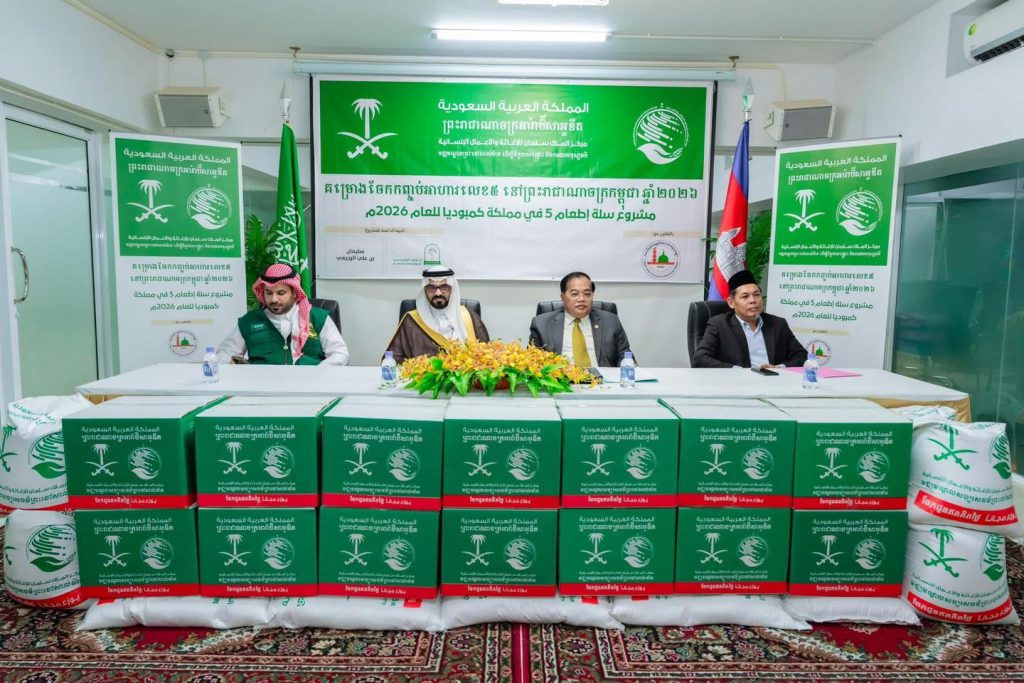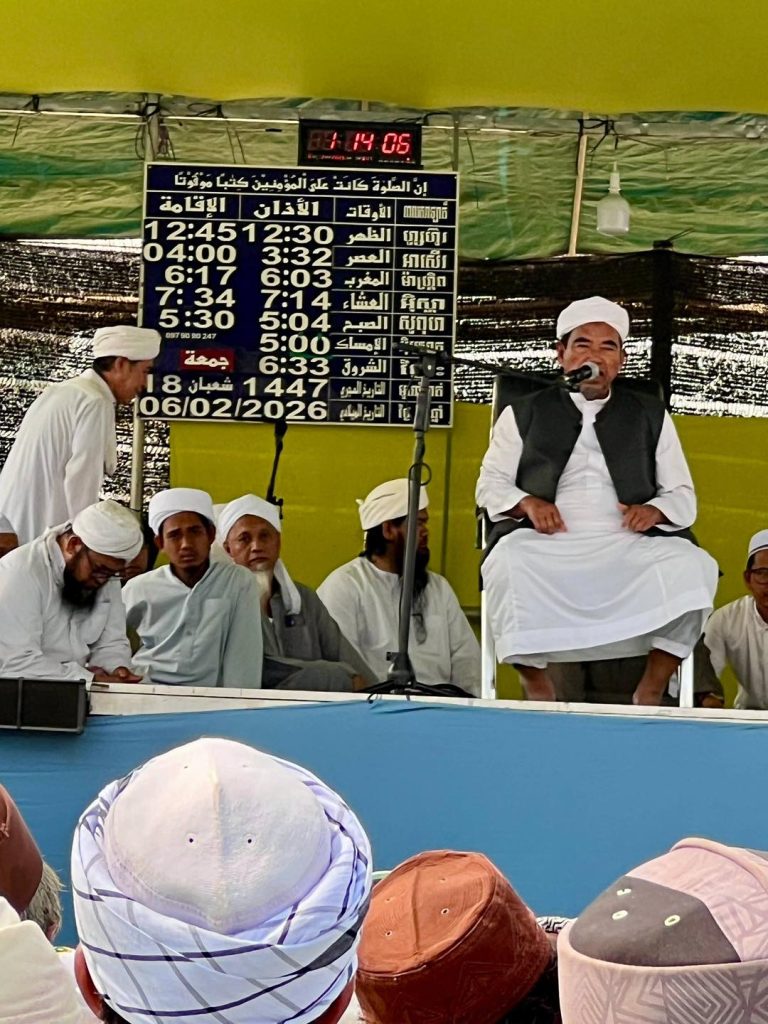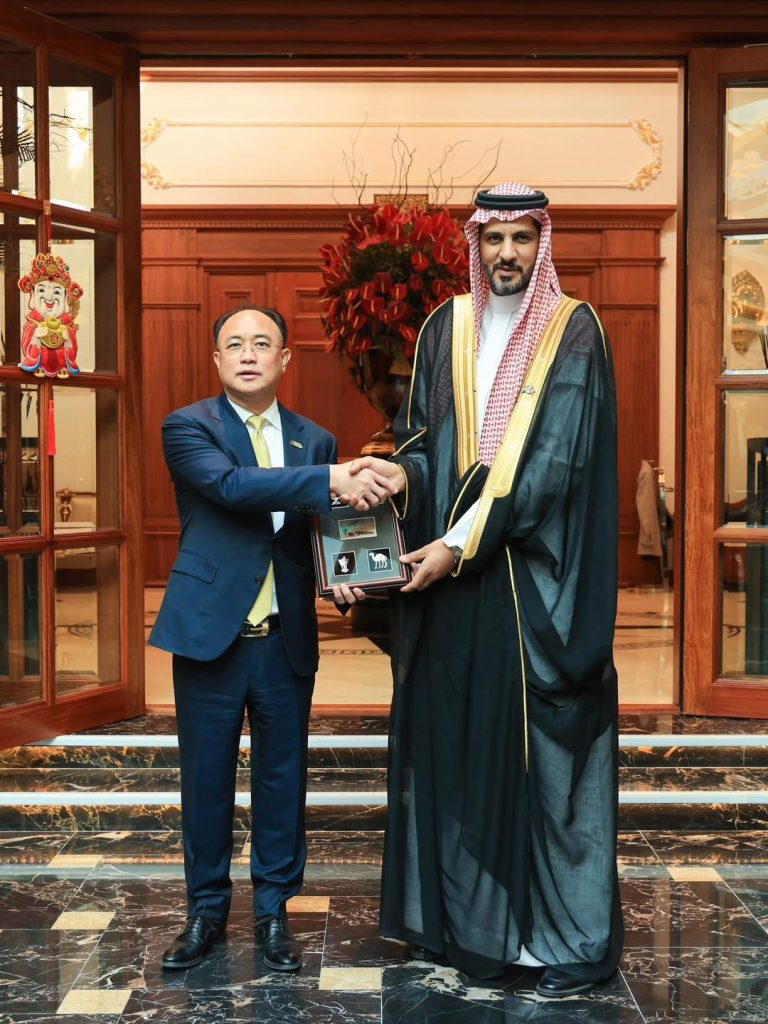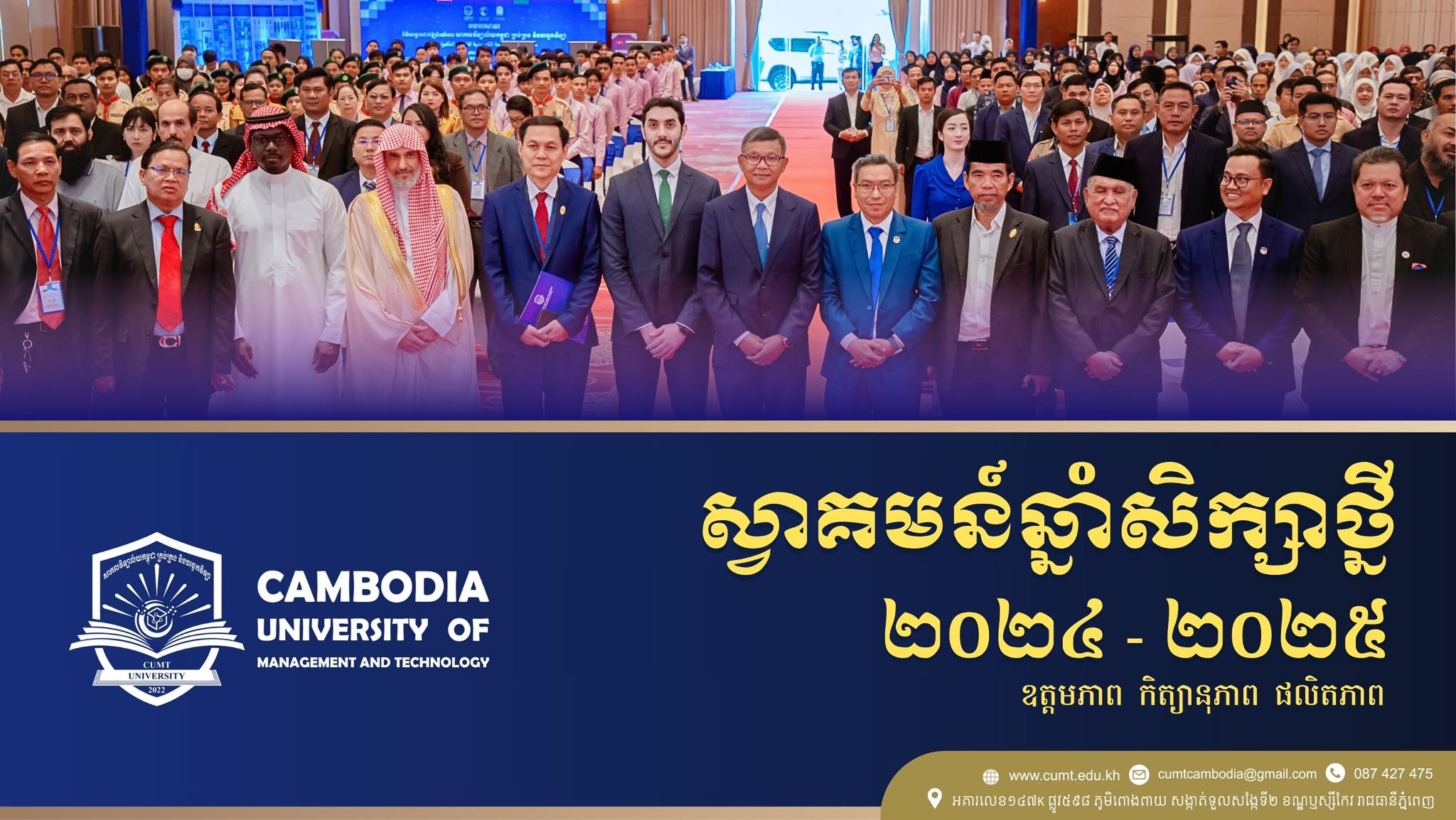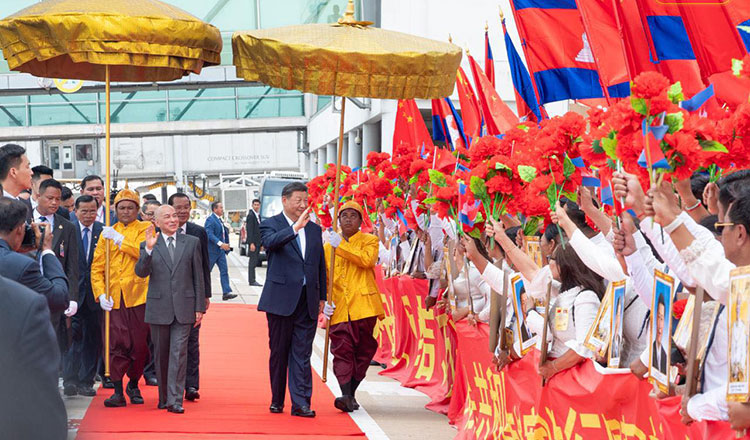
Xi’s visit elevates Cambodia-China relations to new heights


The two-day state visit of Chinese President Xi Jinping to Cambodia has significantly strengthened strategic security cooperation and deepened the “ironclad” friendship between the two nations, further elevating the China-Cambodia community of shared future to a new level.
During the April 17-18 visit, Cambodia and China exchanged and announced a total of 37 cooperation documents in a signing ceremony witnessed by Prime Minister Hun Manet and President Xi at the Peace Palace—marking a major milestone in bilateral relations. Of these, 22 documents were formally exchanged, while 15 others were announced.
The agreements span a wide range of sectors, including investment, trade, education, finance, information technology, youth affairs, agriculture, health, water resources, tourism, women’s affairs, and more—demonstrating the depth and breadth of the partnership.
This marks President Xi’s second state visit to Cambodia in nine years and his first since the formation of the new Cambodian government led by Mr Hun Manet. His visit reflects the high importance the Chinese Communist Party and government—particularly President Xi himself—place on advancing China-Cambodia relations.
“President Xi’s visit on the occasion of the traditional Cambodian New Year is a special New Year’s blessing to the Cambodian people,” said Chinese Ambassador to Cambodia Wang Wenbin during a press conference on Saturday.
The Cambodian government and people warmly welcomed President Xi Jinping’s visit, treating him as a great friend and offering him the highest level of courtesy. King Norodom Sihamoni and Senate President Hun Sen personally received President Xi at the airport, with Mr Hun Sen also accompanying him before his departure.
Tens of thousands of Cambodians from all walks of life lined the streets to greet President Xi, underscoring the significance of the visit, which resulted in a series of fruitful achievements. During his stay, President Xi met separately with King Sihamoni, Queen Mother Norodom Monineath Sihanouk, and Mr Hun Sen, held official talks with Mr Hun Manet, and jointly witnessed the signing of bilateral cooperation documents.
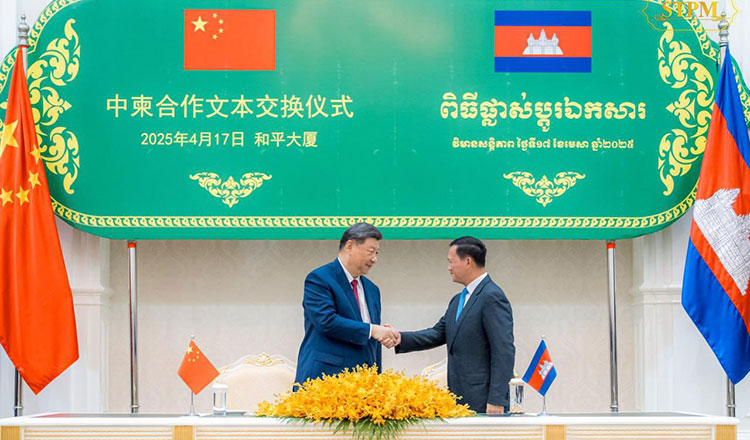
Prime Minister Hun Manet (R) welcomes President Xi Jinping at the Peace Palace on Thursday. PMO
In his meeting with Mr Hun Manet, President Xi reaffirmed China’s strong commitment to enhancing cooperation across all sectors, pledging unwavering support for Cambodia’s vision of becoming a high-income country by 2050.
He also encouraged increased investment and tourism from China and reiterated support for critical infrastructure projects—including mine clearance, road and rural development, water supply systems, and power networks. In addition, President Xi announced that China would provide 1,000 government scholarships to Cambodian students over the next three years.
Mr Hun Manet noted that President Xi’s visit at this moment underscores “the strength of the relationship and cooperation between our two countries, which are comprehensive strategic partners and ironclad friends.”
In a separate meeting with Mr Hun Sen, President Xi reiterated China’s support for broader cooperation between the two nations and their peoples, as well as Cambodia’s development agenda—including the Funan Techo Canal, a major waterway project aimed at boosting trade and economic growth.
According to Ambassador Wang, President Xi stressed that under the new circumstances, both countries should cherish and carry forward the ironclad friendship established by earlier generations of Chinese leaders and the late King Father Norodom Sihanouk. He called for continued efforts to pass on this legacy and ensure the enduring strength of China-Cambodia ties.
As a symbol of honour, King Sihamoni awarded President Xi the “Grand Necklace of the Order of National Independence of the Kingdom of Cambodia”, praising the visit as a historic milestone that would elevate Cambodia-China relations to new heights. Cambodia remains firmly committed to its friendship with China and is willing to sustain high-level exchanges, strengthen strategic security cooperation, and further deepen their ironclad partnership. Both sides have agreed to elevate the China-Cambodia community of shared future to a new level.
Notably, China and Cambodia were the first countries in the world to sign an action plan for building such a community, setting a global example in promoting the vision of a shared future for humanity. During President Xi’s visit, the two countries issued a joint statement expressing a shared commitment to accelerate the development of an all-weather China-Cambodia community with a shared future in the new era.
As part of this vision, the two nations decided to establish a “2+2” strategic dialogue mechanism involving the foreign and defence ministers of both countries. They also agreed to implement the “Outline of the Jointly Promoted Cooperation Plan for the Construction of the Belt and Road Initiative,” fast-track the development of the “Industrial Development Corridor” and the “Fish and Rice Corridor,” and work together to combat online gambling and fraud.
President Xi reaffirmed China’s unwavering support for Cambodia’s development path in accordance with its national conditions, the smooth functioning of its government, and its growing role in international and regional affairs.
Cultural and people-to-people exchanges are also expected to expand. Both countries agreed to designate 2025 as the “Cambodia-China Tourism Year” and to encourage mutual tourism. They plan to establish a youth dialogue and exchange mechanism, while China will continue to offer government scholarships and international Chinese language teacher scholarships to Cambodian students.
On the global stage, the two sides voiced a united stance on defending international fairness and justice. They reaffirmed their commitment to upholding the international system with the United Nations at its core, the international order based on international law, and the basic norms of international relations grounded in the UN Charter. Both oppose all forms of unilateralism and trade protectionism, and pledged to work together as a force for peace, stability, and progress amid global transformations.
President Xi stated that unilateralism and hegemonism are increasingly unpopular in the international arena. Mr Hun Sen noted Cambodia’s readiness to strengthen cooperation with China and jointly address global risks and challenges.
Both nations agreed that President Xi’s visit marked a significant milestone in the history of China-Cambodia relations. The achievements of the visit clearly demonstrate that China remains Cambodia’s most steadfast supporter and most trusted partner. The enduring ironclad friendship between the two countries, they affirmed, is unbreakable.
“We will work with Cambodia to thoroughly implement the results of President Xi’s visit to Cambodia, inherit, maintain and further promote the traditional friendship between China and Cambodia, make new contributions to promoting the building of a community with a shared future for the neighbours and a community with a shared future for mankind, and better benefit the people of the two countries,” Ambassador Wang said.
According to the outcome of the visit released by the Ministry of Foreign Affairs and International Cooperation, the Cambodian side highly appreciated President Xi’s proposals on building a community with a shared future for mankind, as well as the Belt and Road Initiative (BRI), the Global Development Initiative (GDI), the Global Security Initiative (GSI), and the Global Civilization Initiative (GCI).
Cambodia believes that these initiatives contribute to safeguarding the collective interests of humanity and aim to advance global peace, justice, and progress. They also reflect the shared aspirations of people around the world for a better future.
“Both sides will make every effort to promote the implementation of these proposals and make positive contributions to maintaining and promoting peace, stability and prosperity in the region and the world,” the statement said.
Cambodia and China have agreed to establish a “2+2” strategic dialogue mechanism between their foreign and defence ministers to ensure timely coordination on major strategic issues and to further strengthen cooperation in related fields.
Both sides also committed to maximising the potential of existing trade frameworks, including the Cambodia-China Free Trade Agreement, the Regional Comprehensive Economic Partnership (RCEP), and the ASEAN-China Free Trade Area. They pledged to actively push for the signing of the ASEAN-China Free Trade Area 3.0 Upgrade Protocol within this year, and to expand collaboration in emerging sectors to boost and modernise trade.
According to the statement, both countries praised the success of the 2024 Cambodia-China Year of People-to-People Exchange activities and agreed to designate 2025 as the Cambodia-China Year of Tourism. They will encourage citizens of both nations to visit each other’s countries to foster greater cultural and economic exchange.
To support this initiative, the two countries will jointly develop tourism routes, strengthen tourism promotion, and enhance cooperation on tourism safety. They also agreed to improve the quality of tourism professionals through more joint training programmes. In addition, the “Mekong-Lancang Visas” introduced by China in November 2024 will be leveraged to further facilitate travel between the two nations.
During the visit, a launching ceremony was held in Phnom Penh for the programme “Classical Quotes Favoured by Xi Jinping.”
Sok Touch, President of the Royal Academy of Cambodia, has underscored the vital role of expanding people-to-people exchanges in reinforcing the long-standing friendship and comprehensive strategic partnership between Cambodia and China.
He highlighted the deep historical roots of the bilateral relationship, pointing to ancient temple carvings as evidence of early interactions between the two nations. Touch noted that in the modern era, Cambodia-China ties have reached an unprecedented level of depth and breadth.KhmerTime


